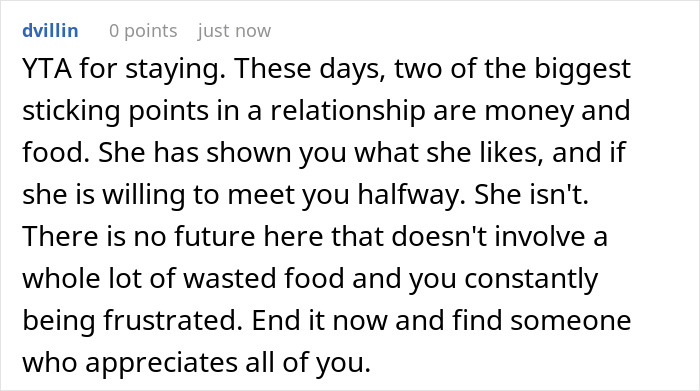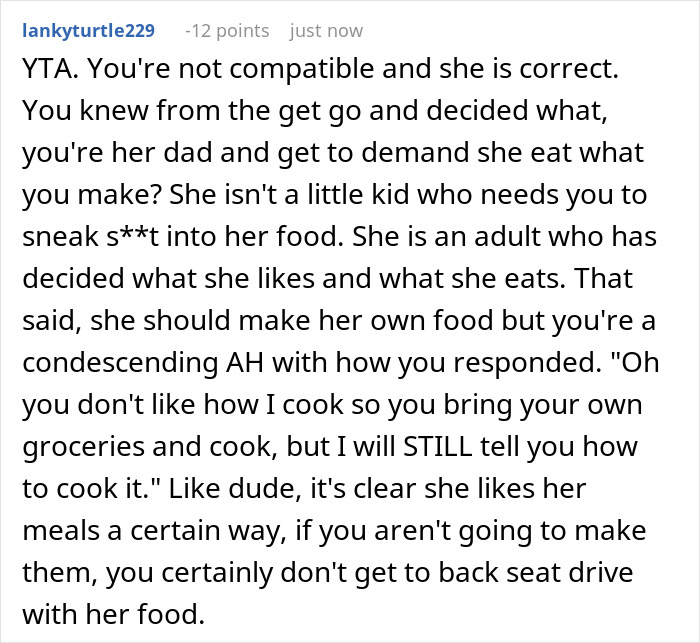Living with a partner means sharing everything from bathrooms to meals, so one learns how to adjust their daily rhythms to someone else’s pretty quickly, otherwise the relationship isn’t likely to last. That last example is, in many ways, one of the more important ones, since eating together has been an integral part of human interaction for, probably, most of human history.
A man turned to the internet for advice on how to deal with his girlfriend who was a picky eater to the fullest extent of the term. We reached out to him via private message and will update the article when he gets back to us.
A partner’s food preferences should be handled with care

Image credits: chartchaik1 / Envato (not the actual photo)
But one man had enough when his picky eater GF didn’t like anything
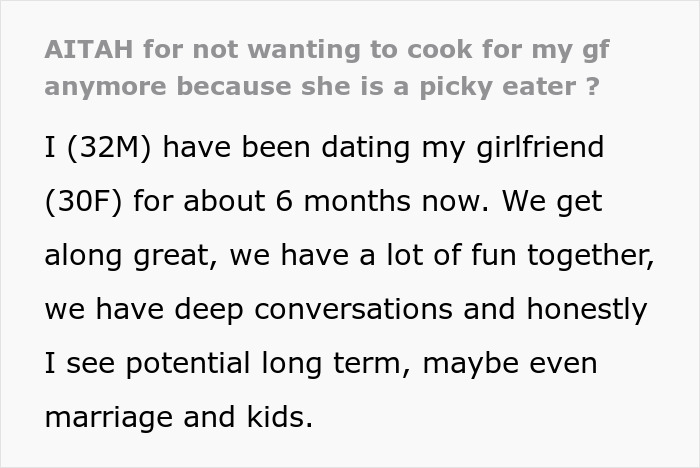
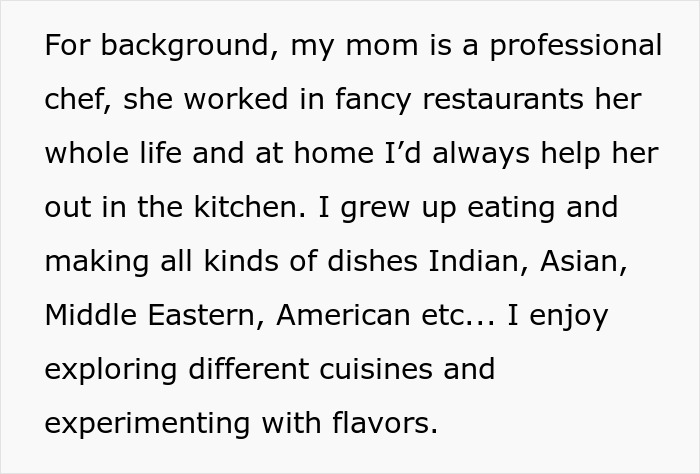

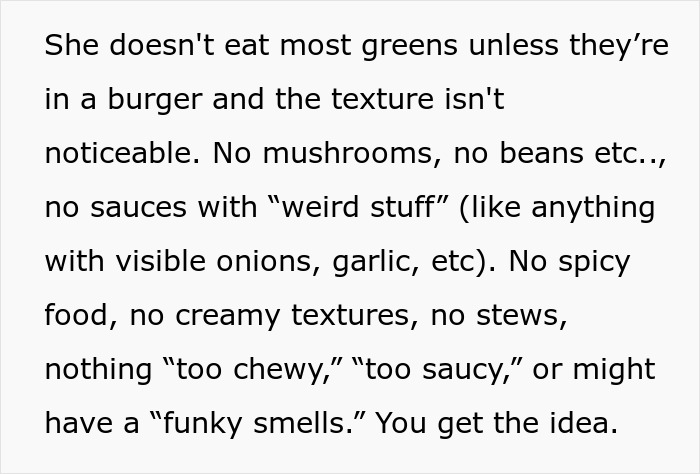

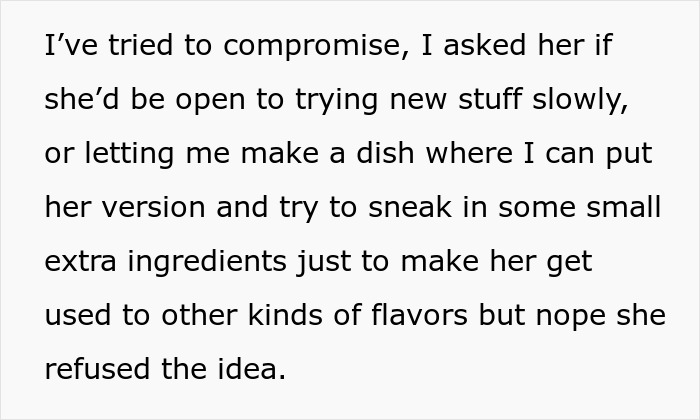
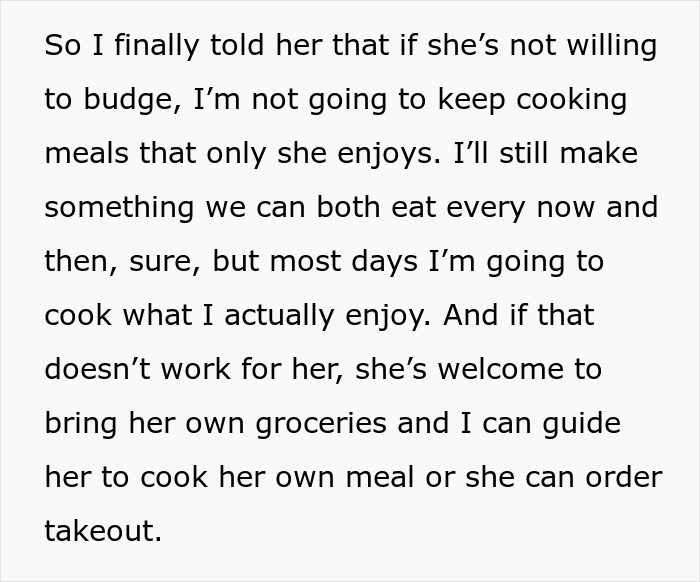
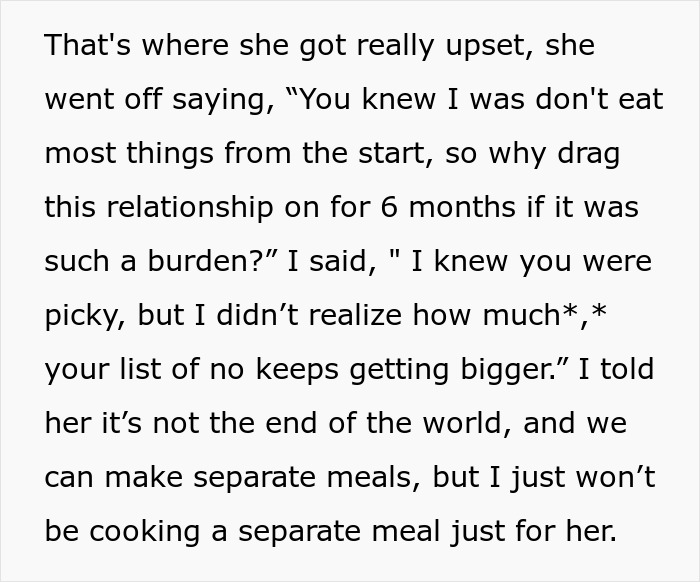

Image credits: YuriArcursPeopleimages / Envato (not the actual photo)
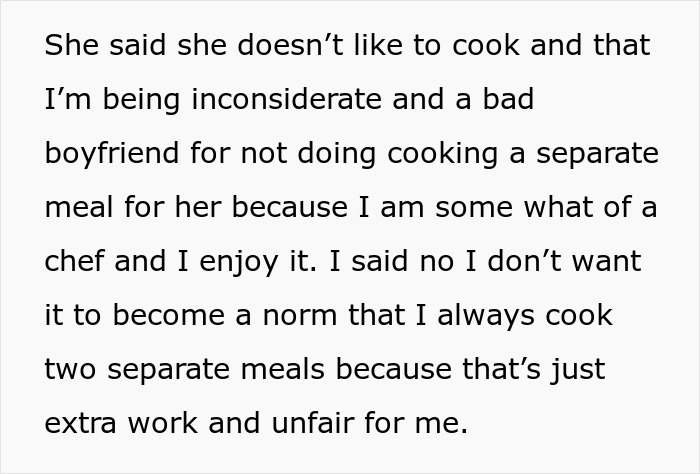


Image credits: Ragnorag
Managing a fussy eater can often feel like a chore

Image credits: Oleg Ivanov / Unsplash (not the actual photo)
Having a picky eater as a partner when you yourself are a foodie can be surprisingly tricky. Food is not just about eating, it’s ritual, culture, pleasure, identity, and often a means of sharing experience. With one person on a strict diet and the other who enjoys variety, spice, and experimentation, the difference can feel more significant than it might at first appear. It can impact date nights, vacations, home cooking, and even social interactions. Working through this dichotomy involves a combination of empathy, patience, communication, and an openness to redefining what “sharing” meals in a relationship looks like.
The most important thing to begin with is that pickiness, while it tends to be made lighthearted or comedic, may have more profound causes. For some, it’s a function of strong dislikes, perhaps related to texture or odor sensitivity. For others, it might be based on behaviors they developed as a kid, on bad experiences, cultural variations, or on anxiety or sensory processing challenges. Calling it childish or maddening isn’t going to bridge the gap, it will probably make it even deeper. Effort to appreciate the existence of their reality, no matter how different it is from your own, is necessary. You’re not trying to change them, but you’re trying to coexist with their tastes in a way that leaves space for your own.
It’s also helpful to let go of the notion that meals shared together must be precisely identical to be meaningful. Just because your partner does not want to try every single item on your plate doesn’t mean they’re not being present with you. A shared meal can be an issue of conversation, proximity, and shared time rather than identical dishes. If you’re the eater who cooks or goes out, you may need to adjust your expectations. In some cases, that means discovering restaurants with very large menus. In others, it means cooking up two somewhat different versions of a dish, or being comfortable with meals where everyone constructs their own pieces, with shared space but not shared limitation.
Any couple in this situation has to find ways to mitigate potential conflicts about food
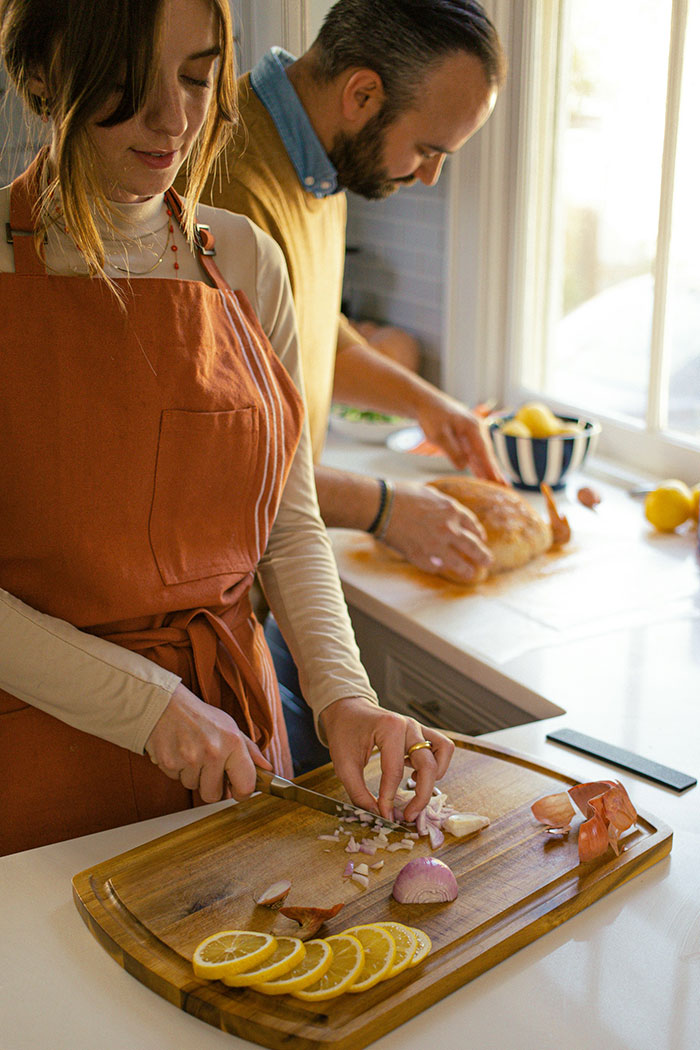
Image credits: Michael T / Unsplash (not the actual photo)
Resentment can burn quietly when meals become a fight. It’s useful to acknowledge that disappointment feels authentic. You may have dreamed of cooking exotic meals together, sampling your way through new cities, or having an adventurous food buddy. Those things may not happen as you’d hoped. But relationships often need to be rebalanced. Maybe you get your fix of adventurous food through friends, solo adventures, or food activities. Maybe your partner’s consistency of palate has opened the door for you to explore other dimensions of your relationship. Life is full of food, but food isn’t the only thing. With frustration comes reality, but so does pausing and contemplating whether you can still show your love of food for what it is without violating your partner’s boundaries.
In time, you may find things do change. Not because you intimidated them, but because trust and comfort can enable others to feel secure enough to open up and investigate further. But if radical change does not occur, the goal isn’t to change the picky eater, it’s to create a rhythm that does not rob either of you of pleasure. This might be compromise, solitude in some meals, or the creation of a larger vision for what sharing in the pleasure of food might look like.
A relationship between a food lover and a picky eater can work. It won’t look like the romanticized food-centered partnerships often depicted in media, but it can be grounded in mutual respect, creative compromise, and emotional generosity. In a world where food is so tied to identity and emotion, the relationship can become not just about what’s on the plate, but how two people with different needs can feed a life together.
Some folks needed more info

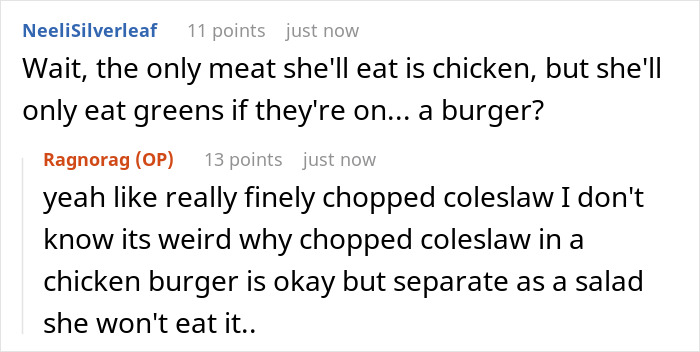
Most thought he was being reasonable
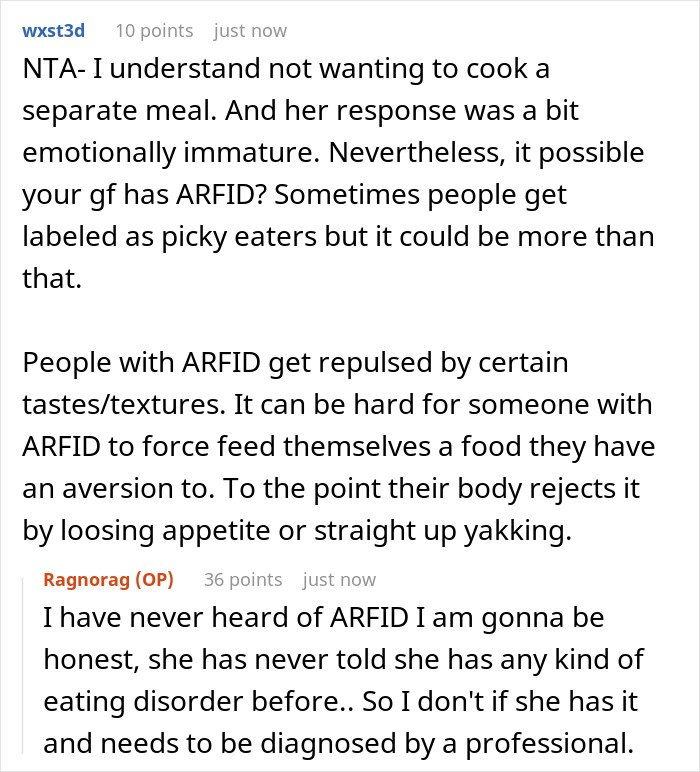
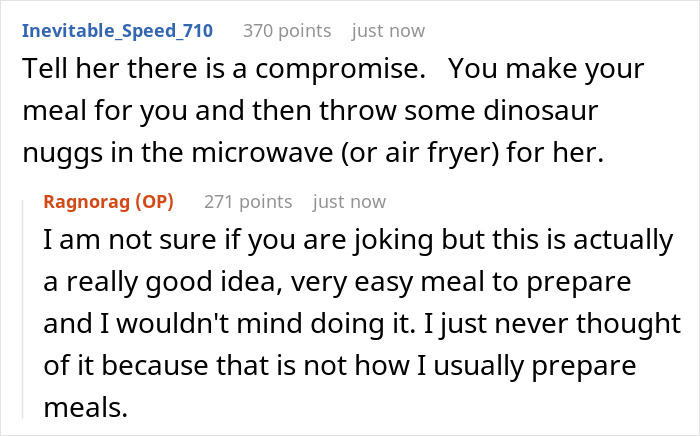




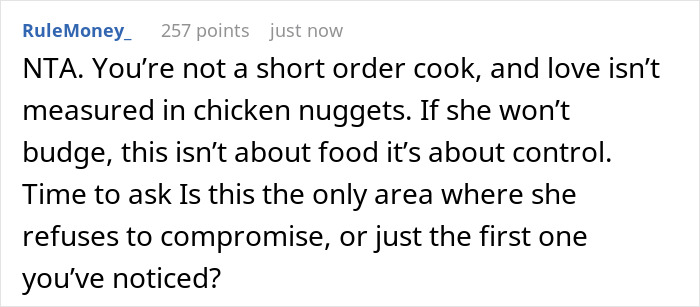






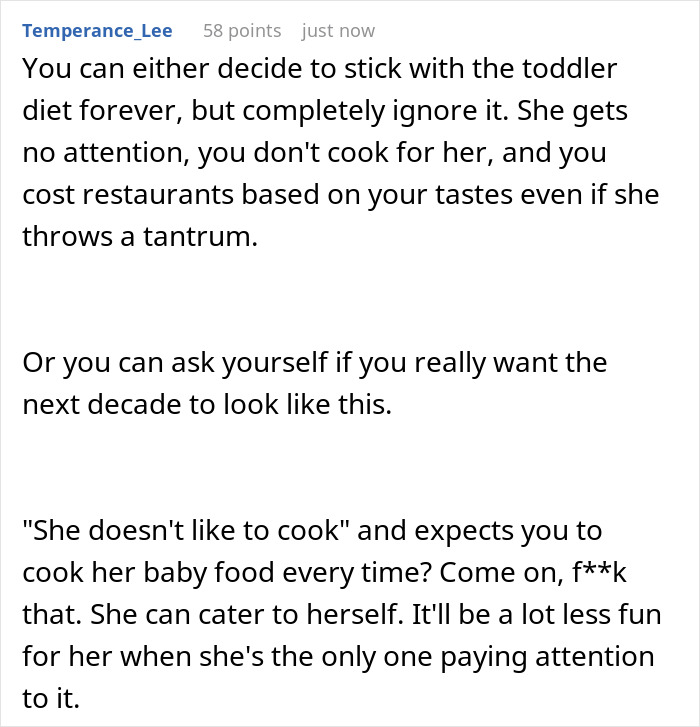
Others shared similar stories

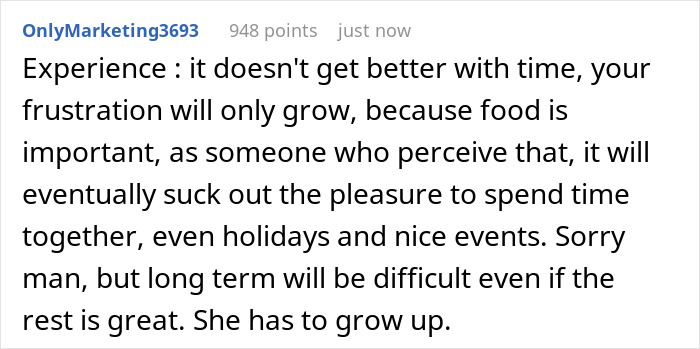
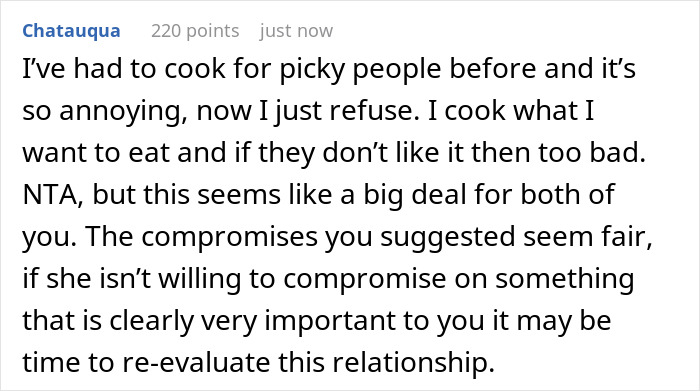

Some readers thought the GF had issues




